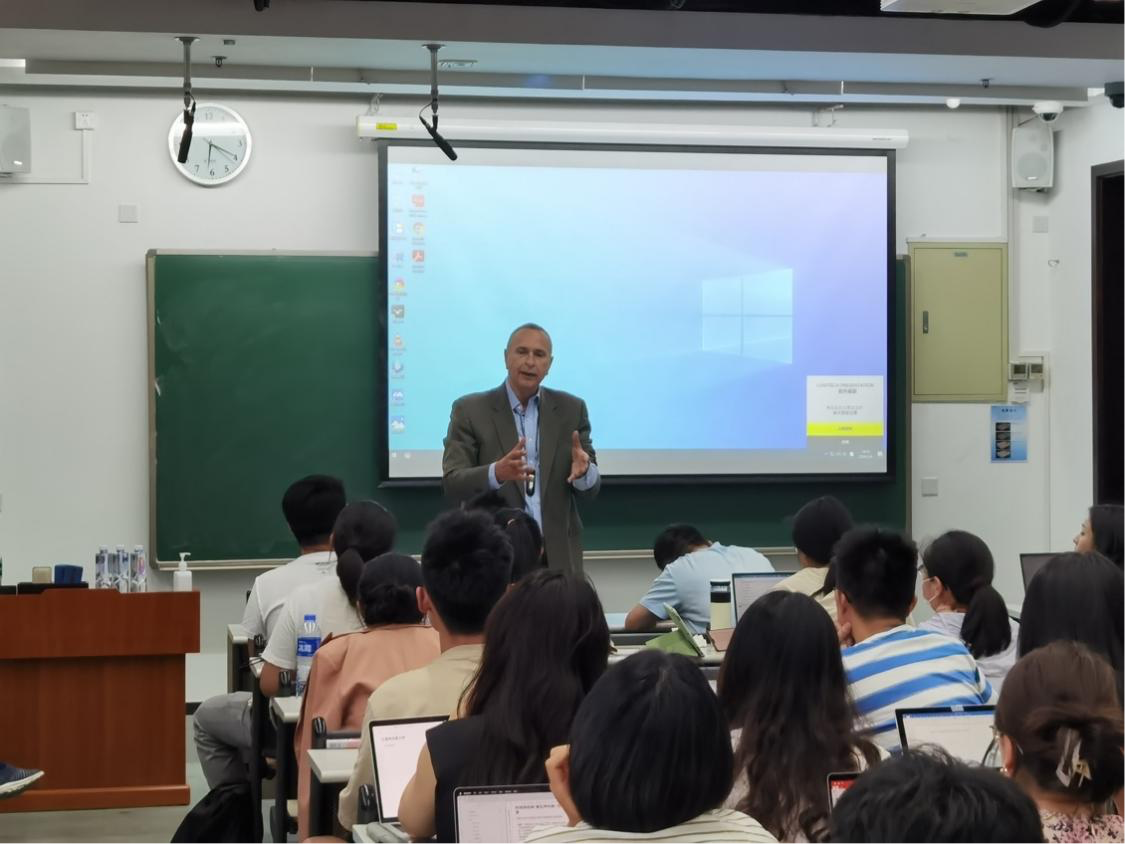
The 3rd lecture of the Adventus Amicorum salon series was held on July 4, 2023 by the Institute of Area Studies, Peking University (PKUIAS). Athanassios Platias, Professor of Strategy at the University of Piraeus, Greece, shared his thoughts on the topic, “Classical Realism and the Competition between Great Powers.” The lecture was moderated by Kong Yuan, associate research fellow of the Institute of European Studies of the Chinese Academy of Social Sciences (CASS). Other participants included Prof. Zhang Yongle, deputy director of PKUIAS and Li Junyang, associate research fellow at the Institute of World Economics and Politics of CASS and deputy editor-in-chief of the journal World Economics and Politics.
Prof. Platias shared his view on classical realism from both theoretical and practical perspectives. He began by discussing the subtopic of “Thucydides and the Strategy of Realism in Great Power Politics” from the theoretical perspective, tracing back to the Athenian historian, who lived during the 5th century. Thucydides’ writings are universally recognized as the origin of classical realism in Western international relations theory. Yet due to mistranslation and misapplication driven by political motives, Thucydides’ opinions have been inaccurately reduced to the simplistic theory that rising powers and dominant powers are predestined for war. The well-known “China threat theory” is the latest manifestation of this oversimplification. In fact, in his History of the Peloponnesian War, Thucydides offers several insightful and eloquent observations on the competition between world powers.
First, the domestic policies of countries evolve dynamically, and, as a consequence, the balance of power between them shifts constantly over the long term. In his History of the Peloponnesian War, Thucydides analyzes the changes in Greek society over a period of about 50 years. During this time, Sparta remained stagnant in domestic politics in order to return to social stability, while Athens kept developing and continued to rise, being famous for its vibrant and democratic society. This led to a major shift in the balance of power that had existed ever since the Greco-Persian Wars right up to the beginning of the Peloponnesian War. Fast forwarding to today, the balance of power among world powers has changed dramatically over the past 40 years. Second, the field of medicine provides a good metaphor for the competition between world powers. Doctors are trained to diagnose bodily diseases in order to treat illness and relieve pain. Similarly, politicians should prepare in advance in order to deal with the uncertainty of war. Yet mastering the uncertainty of politics is far more sophisticated than managing health. According to Prof. Platias, several factors contribute to the uncertainty of politics: the stability, creativity and resilience of a country’s domestic society, the personal leadership style of its political leader, and changes in the international environment.
Third, leadership is critical in managing politics. Politicians must exercise prudent political virtues, manage their own passions and those of their people with reason and ride the waves of fortune and uncertainty in order to be able to provide direction for national development with political foresight.
From the practical perspective, Prof. Platias next discussed the subtopic of “The Security Dilemma of US–China Competition.”
In the discussion session, the two discussants engaged Prof. Platias in an in-depth conversation about the lecture. Prof. Zhang Yongle noted the significant differences between Thucydides’ historical writings and realpolitik, raising the question of what international order would be most stable in today’s multipolar world. Prof. Platias affirmed the possibility of dialogue between civilizations and analyzed how theories of hegemonic stability and power balancing manifested in Thucydides were similar or differed from real-world politics.
Li Junyang asked Prof. Platias about how classical medical methodology was reflected in Thucydides’ writings. Prof. Platias responded that classical medicine involved diagnosing, treating, and preventing disease, while political science tackled diagnosing, treating and preventing political problems—in that sense, it was through the lens of classical medical methodology that Thucydides understood politics itself.


